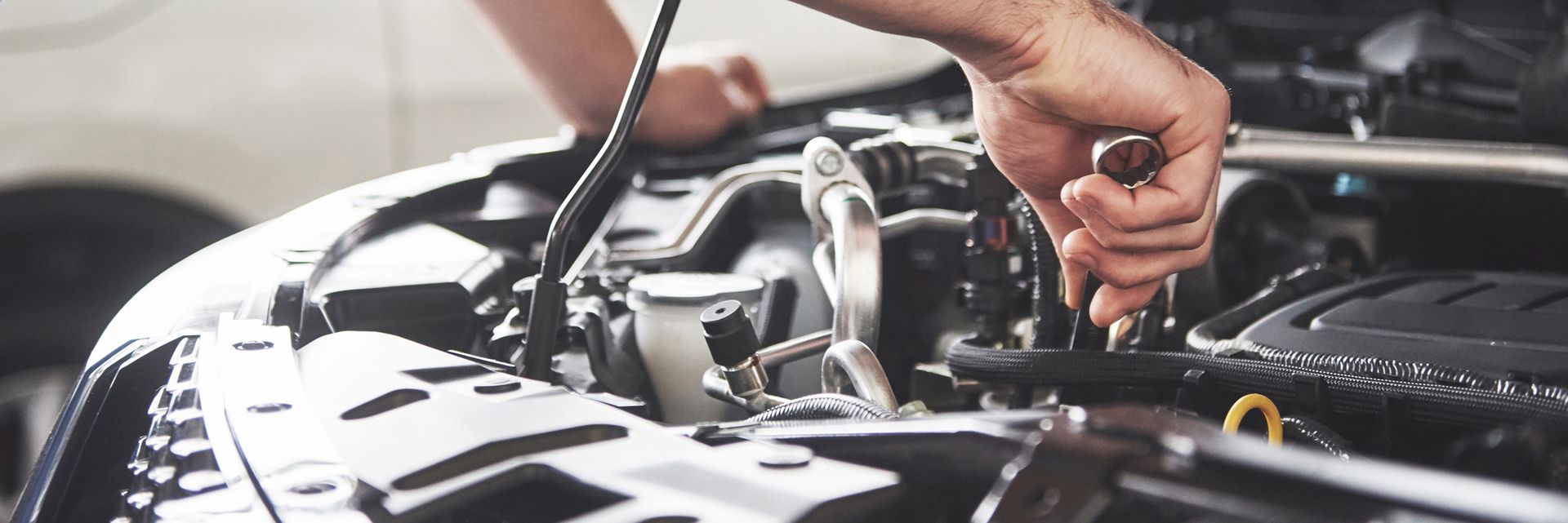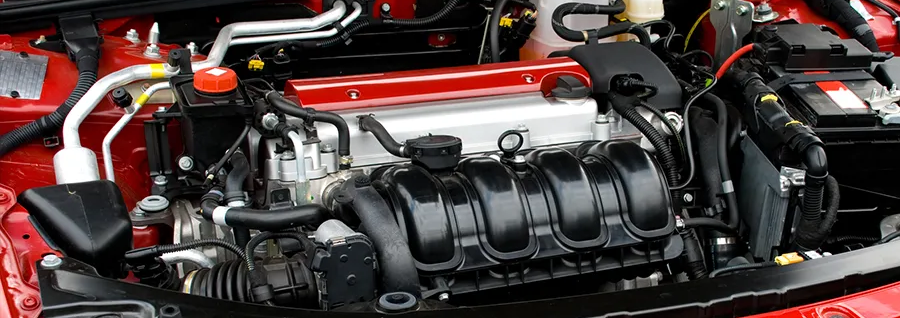Austin Auto Repair Blog

Catching engine problems early can help prevent more extensive damage and keep your car running smoothly. Whether you notice unusual sounds, performance issues, or warning lights, paying attention to these signs can help save you from a breakdown. At Austin Auto Repair, we provide expert engine repair in the greater Austin, TX area. Here are five common indications that your engine may be in trouble. Unusual Noises Knocking or pinging sounds often indicate issues with the combustion process, while grinding or squealing noises could point to worn-out components like belts or bearings. If your engine starts making unfamiliar noises, it’s important to have it inspected before the problem worsens. Loss of Power or Poor Performance If your vehicle struggles to accelerate or has trouble maintaining speed, the engine likely isn’t functioning correctly. A decrease in power can be caused by a variety of factors, including clogged fuel injectors, a failing fuel pump, or ignition system problems. If the engine misfires or hesitates, it could indicate an issue with spark plugs or fuel delivery. Reduced performance should not be ignored, as it can lead to more significant engine issues. Check Engine Light One of the most obvious signs of engine trouble is the illumination of the check engine light on your dashboard. While this light can be triggered by minor issues like a loose gas cap, it can also indicate more serious problems such as a failing sensor, ignition issues, or internal engine malfunctions. Ignoring the check engine light can lead to further damage, so it’s best to have the vehicle’s diagnostic system scanned as soon as possible to determine the exact cause. Discolored/Excessive Smoke from the Exhaust The color of your exhaust smoke can provide valuable clues about engine health. Blue smoke suggests oil is burning. White smoke may mean coolant is leaking into the combustion chamber due to a blown head gasket. Black smoke typically points to an overly rich fuel mixture. If you notice excessive or unusual exhaust smoke, it’s a sign that your engine needs attention. Overheating An overheating engine is a serious issue that can lead to catastrophic failure if not addressed promptly. If your temperature gauge rises above normal or steam starts coming from under the hood, pull over immediately and let the engine cool down. Common causes of overheating include low coolant levels, a malfunctioning thermostat, a failing water pump, or a clogged radiator. Driving with an overheated engine can result in severe damage, so it’s essential to diagnose and fix the problem as soon as possible. Engine Repair in Austin, TX For auto repair in Austin and the surrounding area, contact Austin Auto Repair at 512-865-6217 . Feel free to give us a call to schedule an appointment!

A well-maintained engine is the key to keeping your vehicle running smoothly and efficiently for years to come. Regular care can prevent costly repairs and enable optimal performance. Here are five maintenance tips to help keep your engine in top shape. Regularly Change the Oil and Filter Engine oil lubricates the internal components, reduces friction, and prevents excessive wear. Over time, oil breaks down and collects contaminants, which can cause damage if not replaced. Following the manufacturer’s recommended oil change schedule is crucial for maintaining engine health. The oil filter should also be replaced at the same time to help ensure clean oil circulates through the engine. Keep the Cooling System in Check An overheated engine can lead to severe damage, including warped components and blown head gaskets. The cooling system—which includes the radiator, water pump, thermostat, and coolant—must function properly to regulate engine temperature. Regularly flushing the coolant system as needed helps prevent overheating. Use High-Quality Fuel The quality of fuel you use directly affects engine performance. Low-quality fuel can lead to reduced efficiency. Using high-quality gasoline can help keep your engine running smoothly. Inspect and Replace Spark Plugs as Needed Spark plugs play a critical role in igniting the air-fuel mixture in the engine’s cylinders. Worn or dirty spark plugs can cause misfires, rough idling, and decreased fuel-efficiency. Checking and replacing spark plugs at the recommended intervals helps ensure proper combustion and promotes peak engine performance. Check the Air Filter and Replace It When Necessary The engine requires a clean air supply for efficient combustion. A clogged air filter restricts airflow, which can lead to reduced power and increased fuel consumption. Regularly inspecting the air filter and replacing it when dirty helps maintain proper air intake and makes it easier for the engine to run efficiently. Auto Maintenance in Austin, TX When you need auto maintenance in Austin and the surrounding area, contact Austin Auto Repair at 512-865-6217 . At our local auto shop, we can expertly address your vehicle’s repair and maintenance needs. Feel free to give us a call to make an appointment for car care in Austin!

Your vehicle’s cooling system is essential for preventing your engine from overheating. If the system fails, it can lead to severe engine damage, costly repairs, and even total engine failure. Identifying problems early can save you time and money. At Austin Auto Repair, we provide expert cooling system repair in the greater Austin, TX area. Here’s a look at four signs of a cooling system problem. Engine Overheating One of the most common indications of a cooling system issue is an overheating engine. If your temperature gauge climbs into the red zone or you see an overheating warning light on your dashboard, your engine is running too hot. This could be caused by issues like a malfunctioning thermostat, a failing radiator, or low coolant levels. Ignoring an overheating engine can result in serious damage, such as a warped cylinder head. If your engine begins to overheat, pull over safely and allow it to cool down before checking for possible issues. Coolant Leaks If you notice bright green, orange, or pink puddles (your coolant might be a different color) under your car, it’s likely coolant leaking from your cooling system. A leak can arise from issues such as a cracked hose or a failing water pump. Over time, losing coolant will prevent your engine from maintaining a safe temperature, leading to overheating. If you suspect a coolant leak, it’s essential to have it repaired immediately to prevent further damage. Steam or Smoke from the Engine Seeing steam or white smoke coming from under the hood is a serious sign of a cooling system failure. Driving with an overheated engine can cause catastrophic damage, such as a cracked engine block. If you notice steam, pull over safely, turn off the engine, and let it cool before checking the coolant level. Strange Noises Unusual noises, such as grinding or squealing, can indicate a cooling system problem. A squealing sound may suggest a worn or loose belt. Grinding sounds might come from a failing water pump. These noises should not be ignored, as they can signal issues that may lead to engine overheating and major repairs if left unchecked. Cooling System Repair in Austin, TX When you need auto repair in Austin, TX and the surrounding area, contact Austin Auto Repair at 512-865-6217 . At our nearby auto shop, we can expertly address your car’s repair and maintenance needs. Feel free to give us a call to make an appointment for car care in Austin!


